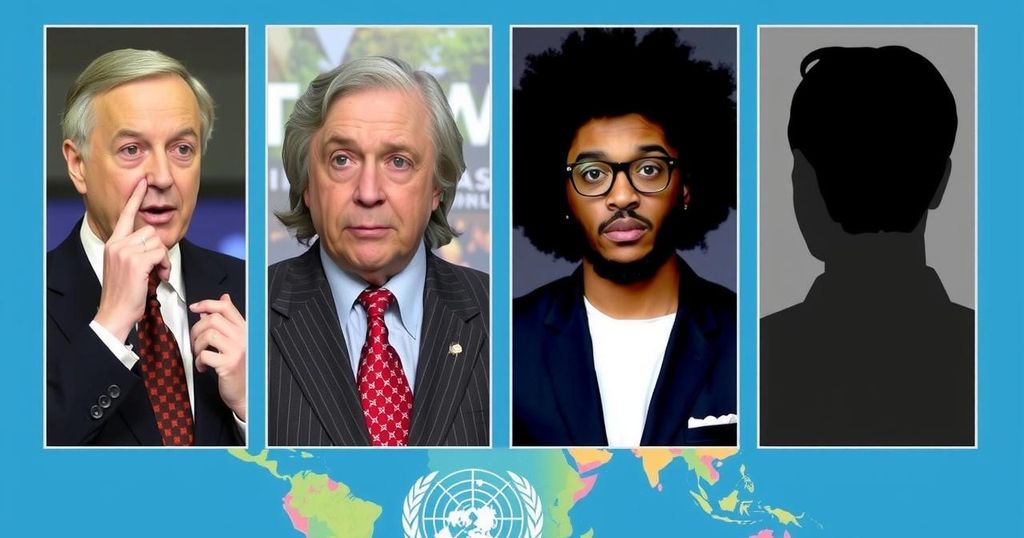Global Leaders Absent from COP29 Amid Growing Climate Concerns

As nations face escalating climate challenges, the absence of leaders at COP29 raises alarm over international climate commitments, particularly with Papua New Guinea and Argentina boycotting the event. Criticism is directed at major carbon-producing countries for failing to fulfill their environmental obligations and support vulnerable nations.
As the global community continues to confront the challenges posed by the climate crisis, the absence of several national leaders at this year’s COP climate conference raises significant concerns. Each year, the COP gathering provides an essential platform for world leaders, climate scientists, and activists to discuss climate-related issues, yet this year, notable nations chose to withdraw. Among these, Papua New Guinea made headlines by fully boycotting the event in protest against the inadequacy of support from major carbon-emitting countries.
Papua New Guinea’s Prime Minister, James Marape, openly criticized the industrialized nations for failing to provide timely assistance to nations severely affected by climate change. He stated, “Our non-attendance this year will signal our protest at the big nations,” emphasizing the historical neglect of smaller nations by larger ones. As a guardian of significant forest resources, Marape articulated frustrations over how the global community prioritizes economic gains over environmental preservation, asserting that “you have not paid for any conservation.”
Additionally, Argentina’s delegation initially attended COP29 but left abruptly following the decision of President Javier Milei, an avowed climate change skeptic, to withdraw support. This move raised alarms regarding Argentina’s commitment to the Paris Agreement,
Other significant players from the G20, including the United States, India, Australia, China, Germany, Japan, and France, sent representatives to the conference, albeit with some leaders choosing to boycott entirely. France’s decision to abstain stemmed from diplomatic tensions with Azerbaijani Prime Minister, Ilham Aliyev, who criticized French colonialism and environmental practices, prompting French Minister Anges Pannier-Runacher to denounce his remarks as “unjustifiable.”
The COP (Conference of the Parties) climate conference serves as a critical international forum where leaders and environmental advocates convene annually to address global climate challenges. The necessity of these gatherings grows more urgent as extreme weather events and natural disasters become increasingly prevalent. Nevertheless, the participation of leaders is essential for collaborative efforts to combat climate change, and their absence this year indicates a troubling trend of disengagement from pivotal climate dialogues.
The notable absence of key national leaders at the COP29 climate conference underscores a worrying trend in international climate diplomacy. Countries like Papua New Guinea and Argentina have expressed dissatisfaction with the commitments made by wealthier nations, signaling a call for greater accountability and support for climate-affected regions. As the climate crisis deepens, these decisions may have lasting repercussions on global cooperation efforts aimed at fostering resilience against climate change.
Original Source: abcnews.go.com






